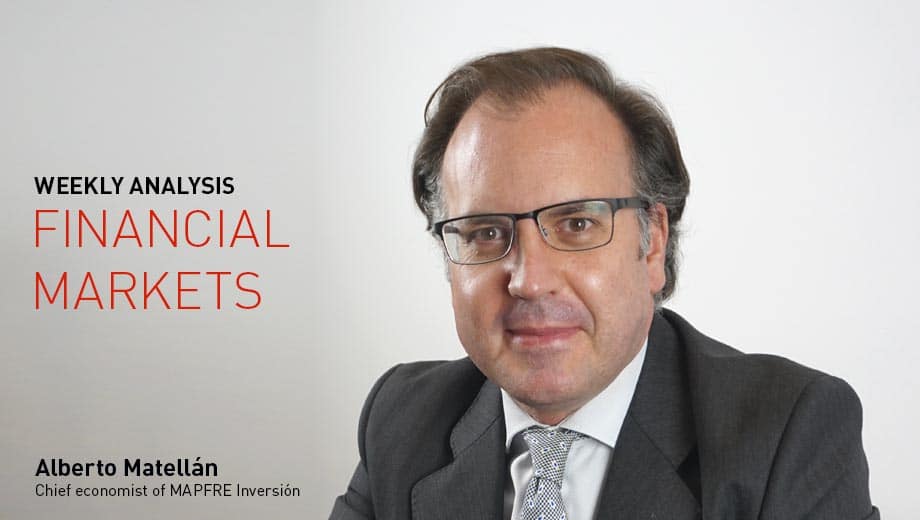“The return of volatility to stock markets is healthy and presents opportunities”

Redacción Mapfre
The markets are turning red. Has the upward potential of stock markets come to an end? According to Alberto Matellán, Chief Economist at MAPFRE Inversión, this change in direction is due to two main factors. First, investors have changed how they feel about the future of the economy. There continues to be robust growth, but perhaps less than expected, as indicated by the latest figures being published on both sides of the Atlantic. This is in addition to there being less liquidity, compared to previous months. But as the economist explained in his weekly statement on Radio Intereconomía, “it is not normal that there hasn’t been any volatility up until now.” “Moreover, volatility can be healthy and it provides opportunities,” he added.
At the macroeconomic level, it is precisely the data on German industrial orders and the U.S. labor market that can confirm this slowdown in growth. In the first case, Matellán points out that what is happening in Germany is very illustrative of what is happening in the global economy. “The forecasts for Europe were improving until recently, but not in the case of Germany. This happens because the circumstances that are occurring worldwide affect Germany more and indicate that European growth comes more from services and the contributions from other countries. Germany is still the European economic engine, but not as much as it used to be.” And in the United States, investors will be focusing their attention on this employment data, which will give clues about not only this growth rate, but also about the internal inflation pressures on the North American economy.

In fact, inflation is the main factor capable of shifting stock markets in the upcoming months. Will it be temporary or permanent? Permanent, from a theoretical point of view, means “it is self-perpetuating and hard to control,” and according to Matellán, it does not seem like it will reach that point. As the economist noted, the recent rebound is due to external shocks, such as energy prices, shortages in the labor market or lack of certain electronic components. “By responding to external shocks, the spike in inflation should be temporary and subside when these shocks do. Furthermore, the implications of it becoming permanent would be high. It also depends on the level, because, for example, central banks would not be prepared to react in the hypothetical case that it reaches rates of 5%,” he explained.
During this period of uncertainty, Matellán recommends investors exercise caution. “Let's not lose everything we have gained in the year, let's protect our portfolios and focus on the long-term. I'm not worried about the noise right now, but I do worry about what will happen next year or even the year after that.” As for the private investor, he believes that it would be a good time for them to analyze their financial position, in other words, to see if their portfolio is aligned with their fiscal needs, and also to check whether the portfolio is functioning the way they want, or if the goals they set with their financial advisor are being met.



